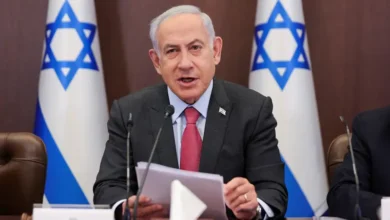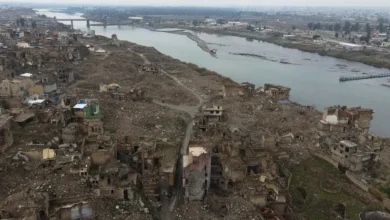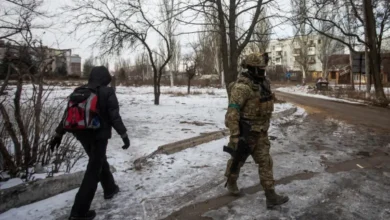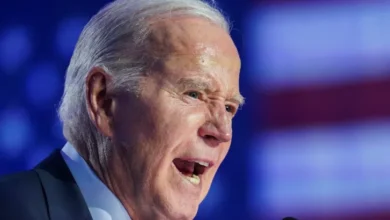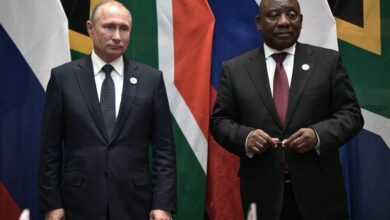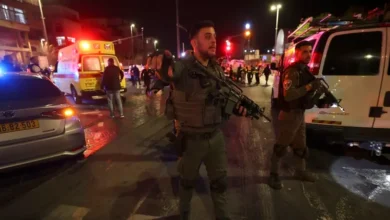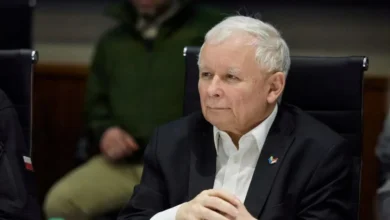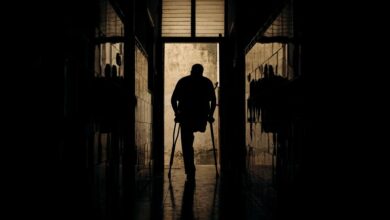Palestinians in Ukraine decry ‘double standard’ as Kyiv supports Israel
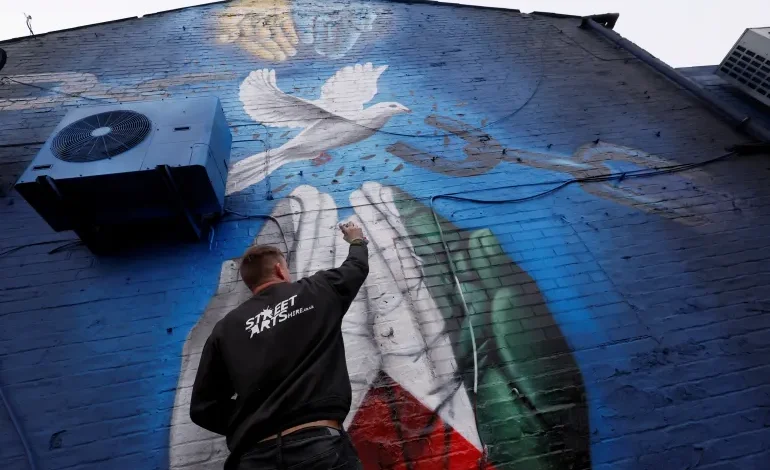
When Russia launched a full-scale war on Ukraine on February 24, 2022, Amer Aroggi, a 30-year-old journalist based in the Gaza Strip, felt compelled to report on the European conflict.
Having lived through the Israeli occupation, he felt he could relate to the plight of the Ukrainians.
The move was seamless, especially because his older brother had lived in Ukraine for many years. Aroggi quickly secured a new role for himself as a correspondent for a prominent news channel.
Less than two years later, war broke out again in his homeland with the latest escalation of the Israel-Palestine conflict.
To some observers, there were parallels between Russia and Israel and Ukraine and the Palestinians.
But in a swift and unequivocal response to the outbreak of the war in Gaza, Ukrainian President Volodymyr Zelenskyy threw his support behind Israel, like much of the Ukrainian population, and almost all Western leaders.
“I saw a double standard. … The world helped the Ukrainians, and no one helped us. No one even helped me evacuate my mother and sister out of Gaza,” Aroggi told Al Jazeera.
Ukrainians were the “victims of massive propaganda” during the first stages of the war, which is why they often supported Israel’s bombardment of Gaza, according to Aroggi.
He said he would like to leave but is unable to because he has a Palestinian passport.
He spends his days glued to the TV, fearing for his family in Gaza.
“My mother asks me, ‘Are you OK? Is there a Russian bombing?’ I say to her, ‘Are you OK? Is there an Israeli bombing?’”
At this point in the war, at least 24,762 Palestinians had been reported killed by Israeli forces in Gaza. While Israel has said it aims to wipe out Hamas, which governs the besieged enclave, the toll on civilians and its conduct have been heavily criticised.
Ukrainian first lady Olena Zelenska said on October 7 that Ukrainians understand and “share the pain” of the Israeli people as billboards across Kyiv lit up the capital with Israeli flags.
Hashem*, a medical professional from Gaza who relocated to Ukraine nine years ago, remained resolute in his allegiance to his adopted home when Russia invaded Ukraine.
Yet the Ukrainian reaction to Israel’s offensive in Gaza left him grappling with conflicting emotions in the initial months of the war, particularly since “Ukraine suffers from occupation like Palestine”, he said.
The prevailing narrative in the national media favours Israel and influences public sentiment, he said.
Hashem also suffered personally. He said he received threats and discriminatory messages full of hate from individuals who learned he was from Gaza but residing in Ukraine. Even so, he plans to stay in Ukraine.
A shift in opinion?
Now more than three months into the Middle East war, Hashem and Aroggi said they have witnessed some changes in public opinion.
The constant stream of images of death and destruction in Gaza has had an impact, leading some Ukrainians to start openly criticising their government’s position.
In November, more than 300 Ukrainian scholars, activists and artists expressed their solidarity with Palestinians in an open letter.
The letter emphasised the right of Palestinians to self-determination and resistance against Israel’s occupation, drawing parallels to Ukrainians resisting the Russian invasion.
Hashem said some Ukrainians came to view the “Israeli narrative” as both “false and unfair” and he “began to feel moral support” for himself and the Palestinian people.
Mounting pressure from pro-Palestinian segments of society eventually forced a gradual shift in the Ukrainian government’s position, he believes.
He pointed to Ukraine’s backing of a UN resolution on November 12, urging the International Court of Justice (ICJ) to provide an opinion on the legal consequences of Israel’s occupation of the Palestinian territories.
However, Ukraine chose to abstain from voting on a recent resolution advocating for a humanitarian ceasefire in war-torn Gaza.
Yuliia Kishchuk, a researcher who signed the open letter, told Al Jazeera that Israel enjoys significant support from Ukrainian political liberals who view Israel as a democratic and progressive nation.
“Israel is portrayed in Ukrainian media as this very democratic state that is defending itself against the autocracy of other Middle Eastern countries,” she said, adding that crucially “there is no Palestine in this narrative.”
Kishchuk said the level of knowledge about Palestine, its history and the ongoing Israeli occupation has begun to increase.
Leading Ukrainian opinion makers and intellectuals specialising in the Middle East have gained traction in the media, providing context about Ukraine’s historical support of Palestine. Kyiv had previously consistently backed UN resolutions denouncing Israel’s occupation of Palestinian territories.
Meanwhile, images depicting the “horrors” of Israel’s bombardment of Gaza have created a sense of empathy among Ukrainians who now are unable to ignore the parallels with their own experiences of war, she said.
Kishchuk has also been buoyed by a change of tone among government officials in recent months.
In December, in something of a shift, Zelenskyy said Ukraine recognises the independence of both the Israeli and Palestinian people.

